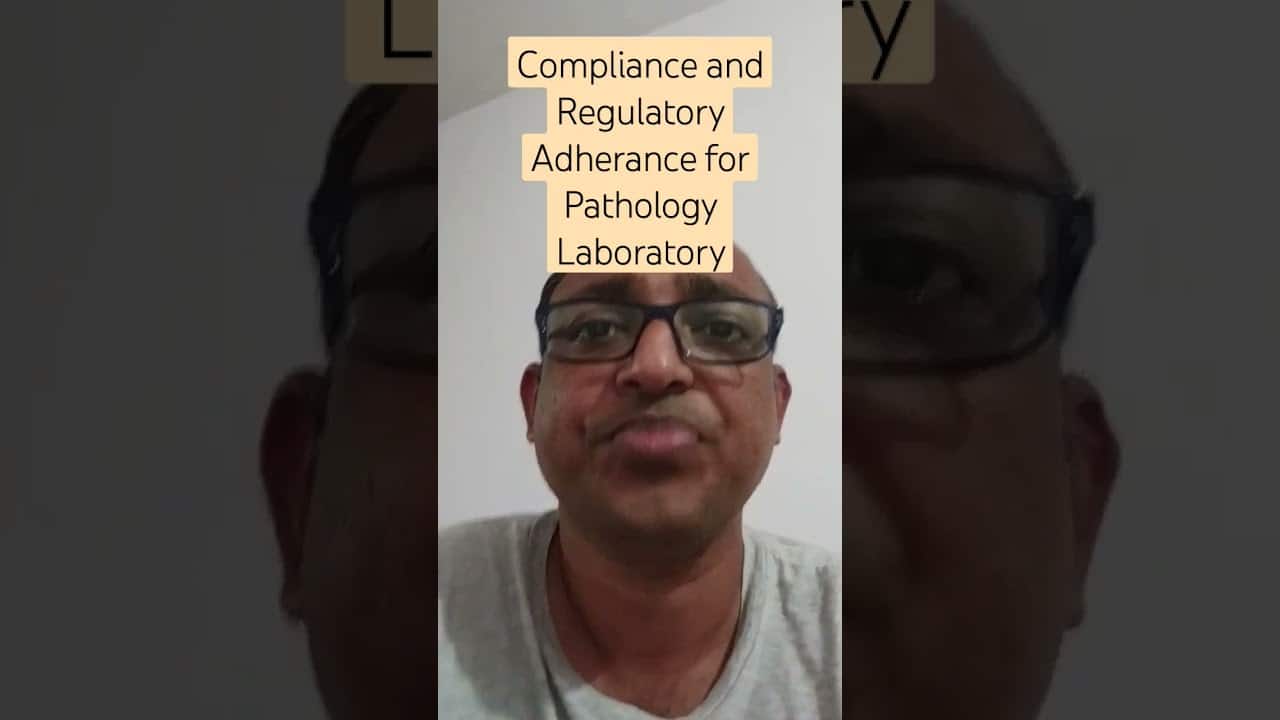Compliance and regulatory adherence are crucial for pathology laboratories in India to ensure patient safety, data security, and the delivery of high-quality diagnostic services. Here are key areas of compliance and regulatory adherence for pathology laboratories in India:
1. NABL Accreditation:
– Seek accreditation from the National Accreditation Board for Testing and Calibration Laboratories (NABL), which is a recognized body for laboratory quality assurance in India.
2. Clinical Establishment Act:
– Ensure compliance with the Clinical Establishments (Registration and Regulation) Act, which governs the registration and operation of clinical establishments, including pathology labs.
3. Bio-Medical Waste Management Rules:
– Adhere to the Bio-Medical Waste Management Rules, which regulate the proper disposal and management of bio-medical waste generated in the laboratory.
4. Data Privacy and Security:
– Comply with data privacy and security regulations, especially if dealing with electronic health records (EHRs). Implement strict access controls and encryption measures.
5. Medical Waste Disposal:
– Follow guidelines for the safe disposal of hazardous waste, including biohazardous materials and chemicals, as per the Biomedical Waste (Management and Handling) Rules.
6. Quality Control and Assurance:
– Implement comprehensive quality control and assurance programs to maintain accurate and reliable test results.
7. Laboratory Information Management System (LIMS):
– Use a secure LIMS to manage patient data, test results, and laboratory operations while ensuring data integrity and confidentiality.
8. Regulatory Reporting:
– Report infectious diseases and other notifiable conditions to the relevant health authorities as required by law.
9. Staff Qualifications:
– Employ qualified and certified pathologists, laboratory technicians, and support staff.
– Ensure ongoing professional development and training for staff.
10. Standard Operating Procedures (SOPs):
– Develop and maintain SOPs for all laboratory procedures and processes, including sample collection, testing, and reporting.
11. Equipment Calibration and Maintenance:
– Regularly calibrate and maintain laboratory equipment to ensure accurate and reliable test results.
12. Emergency Preparedness:
– Develop emergency preparedness plans to address unexpected events or natural disasters that may impact laboratory operations.
13. Patient Consent:
– Obtain informed consent from patients before conducting diagnostic tests, ensuring they understand the purpose, risks, and benefits.
14. External Quality Assurance Programs:
– Participate in external quality assurance programs and proficiency testing to verify the accuracy of laboratory tests.
15. Medical Records Management:
– Maintain accurate and organized medical records, including patient histories, test results, and reports, in compliance with relevant regulations.
16. Ethical Practices:
– Adhere to ethical guidelines for laboratory practices and interactions with patients, healthcare providers, and referral sources.
17. Audit and Inspection Readiness:
– Regularly conduct internal audits to ensure compliance with regulatory requirements and be prepared for inspections by health authorities.
18. Continual Monitoring and Improvement:
– Continuously monitor and assess laboratory processes and procedures to identify areas for improvement and ensure the highest standards of patient care.
Compliance with these regulations and adherence to best practices are essential for maintaining the integrity and reputation of a pathology laboratory in India. Regularly review and update your compliance processes to stay current with evolving healthcare regulations and standards.
source


